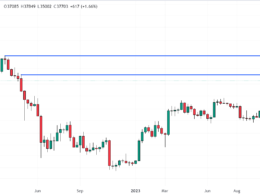Wikipedia co-founder Jimmy Wales recently voiced his criticism of Bitcoin, igniting a heated debate within the crypto community. In a sarcastic manner, Wales highlighted the potential asset losses experienced by users who forget their wallet passwords, emphasizing the contrasting reality of centralized finance. His remarks have drawn backlash from both centralized finance players and regulators, raising concerns about the potential loss of assets without recovery in the event of forgotten wallet passwords.
Wales took to X (formerly Twitter) to express his thoughts on Bitcoin’s structure, stating, “If I lose my bank password, I don’t lose my assets. But the same cannot be said for cryptocurrencies. Banks work unlike Bitcoin.” This comparison stirred controversy, as many argued that Wales failed to grasp the intricacies of the Bitcoin ecosystem and its advantages.
Lyn Alden, an investment strategy expert, shared a poignant anecdote on X about a Lebanese doctor who suffered significant financial losses due to inflation, assuming money’s safety. Alden’s comment aimed to highlight the vulnerabilities of traditional finance systems, contrasting them with the potential of virtual assets.
Alex Gladstein, the Head of Strategies at the Human Rights Foundation Group, responded to Wales, pointing out the limitations of traditional banks. Gladstein noted, “Banks work decently as long as you live in a country with the rule of law and a strong currency. So maybe okay for ~1 billion people out of 8 billion people. And they tend to not work very well if you criticize the government or voice provocative opinions.”
Amidst the controversy, industry experts underscored the disruptive potential of blockchain and decentralized finance in eliminating intermediaries. By removing middlemen, the process becomes more user-friendly and aligned with the best interests of the users. Proponents argue that this decentralized approach could particularly benefit unbanked populations in remote areas, providing access to financial services without the need for physical presence.
Samson Mow pointed out the difference in operational models between Wales’ organization, Wikipedia, and Bitcoin. Mow highlighted that while Wikipedia relies on donations, Bitcoin operates on a different principle. He even mentioned suggesting to Wikipedia to invest in Bitcoin several years ago.
Critics of central finance also drew attention to the failures and implosions within traditional banking, citing misguided decisions made by executives. They argued that comparing privately held Bitcoin wallets to banks is an inaccurate analogy. Instead, they suggested a comparison between physically storing cash in a bank, which can be lost, and losing Bitcoin due to forgotten passwords.
According to Daniel Scott, the analogy of physically storing cash in a bank aligns more closely with losing access to a Bitcoin exchange account, which can be restored through a password reset, similar to banks. However, losing physical cash is analogous to losing Bitcoin permanently.
In summary, Wales’ critique of Bitcoin has sparked a contentious debate surrounding the advantages and drawbacks of centralized finance and decentralized systems like blockchain. While the controversy continues, experts stress the need to acknowledge the unique characteristics and potential benefits that Bitcoin and decentralized finance offer.

















